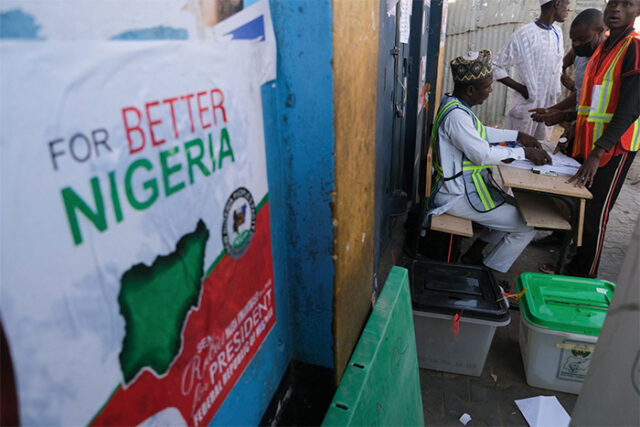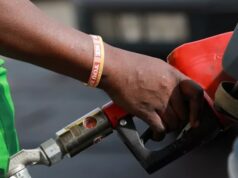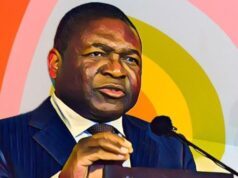
(3 minutes read)
Nigeria’s general elections were mostly peaceful notwithstanding isolated cases of violence, delays, and technical glitches. However, pollsters apprehend that the slow uploading of results online may lead to electoral malpractice
Nigeria’s general elections were mostly peaceful notwithstanding isolated cases of violence, delays, and technical glitches. However, pollsters apprehend that the slow uploading of results online may lead to electoral malpractice. The result of the poll cannot be predicted despite counting results pouring in. Voters, who thronged the counting stations are demanding immediate destruction of unused ballots to avoid any possible malpractices.
Nearly 90 million voters were eligible to vote on Saturday, the election day. The front runners are former Lagos governor Bola Tinubu, 70, of the ruling All Progressives Congress (APC) and his old rival, former vice president Atiku Abubakar (76) of the Peoples’ Democratic Party (PDP), and Labour Party leader Peter Obi of the Labour Party. This is the first time a strong third-party candidate is contesting to wean away the votes. Obi has the support of mostly the youth who are looking for a change.
There were over 176,000 polling units in the country, which also will elect Nigeria’s two houses of parliament, the National Assembly and Senate. In Lagos and other cities, crowds stormed polling stations late on Saturday as electoral officials tallied the first results by hand and read out the counts before transmitting them to a central database. That led to voters insisting that the unused ballots should be destroyed to pre-empt any possible misuse.
Read Also:
https://trendsnafrica.com/nigeria-voted-amidst-economic-uncertainties/
https://trendsnafrica.com/nigerian-elections-suspense-over-outcome-continues/
Election results for the presidential election were not yet available on the website of the Independent National Electoral Commission (INEC). The commission has 14 days to officially announce results, but an online tally could be made available in the next hours or days. Despite the isolated cases of violence and technical problems, INEC remained confident about the electoral process. To win the presidency, a candidate must get the most votes and also win 25 percent in two-thirds of Nigeria’s 36 states.





